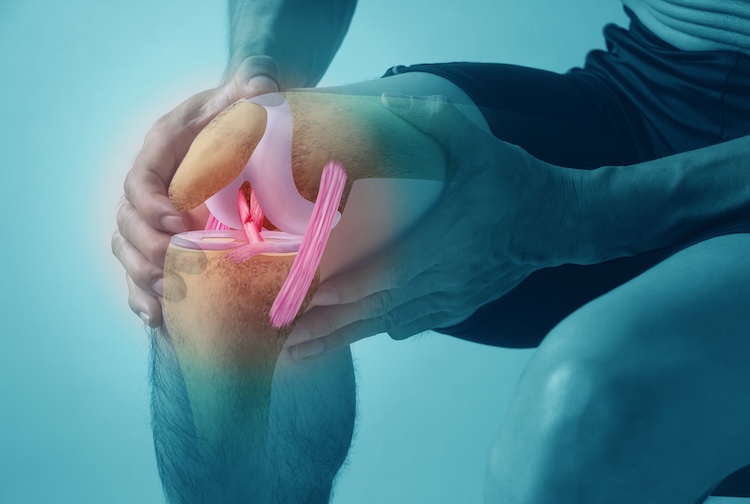VCU Health joins national study to improve clinic visits for ALS patients
The clinical trial received a $13M funding award to assess whether video recordings of appointments boost patient satisfaction and compliance with treatments.
May 07, 2025 The research project will assess whether the recordings of clinic visits have a positive impact on the patient’s experiences and if they help with managing the illness at home. (Getty Images)
The research project will assess whether the recordings of clinic visits have a positive impact on the patient’s experiences and if they help with managing the illness at home. (Getty Images)
By Olivia Trani
Providing patients with the best care possible is a team effort. This is especially true for patients with amyotrophic lateral sclerosis (ALS), also known as Lou Gehrig's disease, a progressive disease that slowly deteriorates the motor neurons in the brain and spinal cord. Experts from across disciplines work together to deliver treatments and therapies, help patients manage symptoms, and connect them with the equipment necessary to navigate daily life.
Receiving this kind of comprehensive care during clinic visits can improve patient health outcomes, prolong survival and enhance their quality of life. Now, VCU Health’s ALS Clinic is joining a national study to better understand how care teams can best help patients follow clinical recommendations once back at home.
The research project, led by Dartmouth Geisel School of Medicine and Massachusetts General Hospital, will film appointments and provide video recordings for participating patients and their caregivers to review afterward. The study will assess whether these efforts have a positive impact on the patient’s experience during clinic visits and help them manage their illness at home. The initiative received a five-year, $13 million funding award from the Patient-Centered Outcomes Research Institute (PCORI) to perform this research, with VCU Health ALS Clinic serving as one of eight sites across the United States participating in the clinical trial.
“Having a video version of the clinic visit allows patients and their caregivers to review the visit after the fact to ensure they capture all recommendations. We think this could help with improving patient satisfaction and compliance with treatments,” said Kelly Gwathmey, M.D., director the VCU Health ALS Clinic. She is also chair of the neuromuscular division and an associate professor of neurology at the VCU School of Medicine. “This research opportunity allows us to compare this new care delivery model to the current standard of care and see which approach is more beneficial.”
ALS affects about 30,000 people in the U.S. and an estimated 450,000 people around the world. Typically, once diagnosed, a person lives between two to five years. While there is no cure, medications and therapies have been shown to help manage symptoms and slow the progression of the disease. The gold standard for ALS care is quarterly multidisciplinary clinic visits where patients and their caregivers have back-to-back appointments with various specialists, including a neurologist, respiratory therapist, dietician, social worker, as well as speech, physical, and occupational therapists.
During the visit, patients and caregivers receive medications, equipment and, important instructions on how to manage symptoms. This “one-stop shop” approach has been shown to improve a patient’s quality of life and extend their survival, but this process can also be incredibly burdensome. A typical clinic visit for an ALS patient can last 3 to 5 hours and involve upwards of ten clinicians.
“Patients and caregivers are given summaries of their visits, but the treatment sessions can be complicated and the details hard for them to remember, especially once they’re back home, where most of the care takes place,” said Paul Barr, Ph.D., an associate professor of The Dartmouth Institute for Health Policy & Clinical Practice at the Geisel School of Medicine and one of the co-leaders of the new clinical trial.
Enhancing ALS care practices through clinical research partnerships
In 2018, Barr and his colleagues launched a pilot study involving 24 participants to assess the effectiveness of video recordings for improving patient experiences during clinic. The results from the initial project were promising, and some patients and caregivers expressed that they felt more present during the visits knowing they were able to play back what was said later on.
Now with funds from PCORI, the researchers are able to expand these efforts. The project team will recruit 50 people living with ALS and their primary caregivers at each of the eight sites (800 participants in total). In addition to Dartmouth, Harvard/MGH, and the VCU Health ALS Clinic, other collaborating sites include Penn State University, University of Wisconsin-Madison, University of Pittsburgh, University of Alabama Birmingham, and Mayo Clinics in Jacksonville, Florida, and Phoenix, Arizona.
These sites were recruited from the Northeast ALS Consortium (NEALS), a non-profit organization dedicated to rapidly translating scientific advances into clinical research and new treatments for people living with ALS.
In accordance with patient privacy regulations, patients who choose to enroll in this study will either receive the standard of care – detailed summaries of each clinic visit and training on how to best access these notes through the patient portal – or video recordings of each of their sessions. The recordings will be broken into chapters per specialist for patients and caregivers to review on their own time at home. Over the course of 12 months, the researchers will assess whether the video recordings provide any added value – or any potential harms – for the patients, caregivers, and providers.
In addition to utilizing the expertise of scientists and clinical teams, the project will rely on the experiences of patients and caregivers in helping to guide its research efforts.
“The patients and caregivers who choose to participate in clinical studies play a crucial role in advancing our understanding of this disease and how we can best provide care,” Gwathmey said. “This is why at the VCU Health ALS Clinic, everyone qualifies for some form of research participation, regardless of their disease stage, to ensure that all patients have the opportunity to help with developing better treatments and improving the quality of life for those living with ALS.”
This article is a modified version of a release from Dartmouth Geisel School of Medicine.This award has been approved pending completion of PCORI’s business and programmatic review and issuance of a formal award contract.
Learn more about our innovative researchers and their projects




